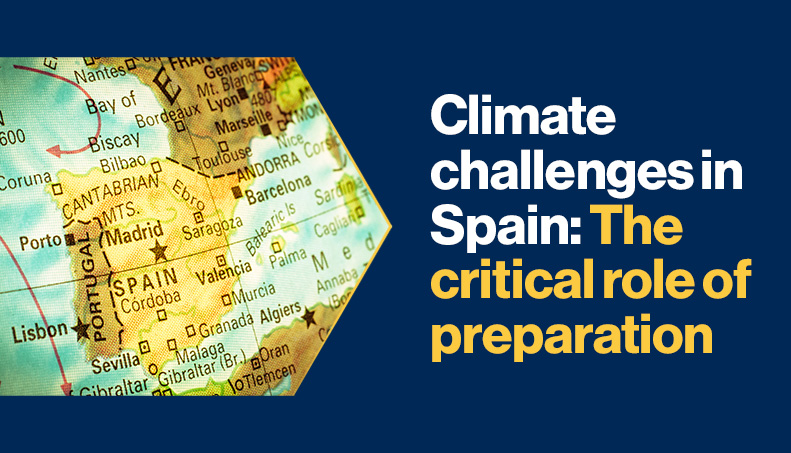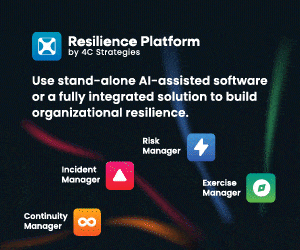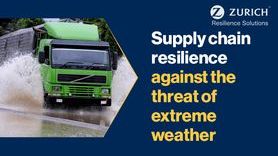Climate challenges in Spain: The critical role of preparation

On October 29 eastern Spain experienced deadly and destructive flash floods that caused widespread devastation and claimed the lives of over 200 people when a phenomenon called DANA (Depresión Aislada en Niveles Altos) triggered almost a year's worth of rainfall in just eight hours.
Alongside the devastating loss of life, infrastructure including roads, railway lines, and bridges were damaged, and streets filled with debris from powerful flash floods. Although the government issued a civil alert that warned people not to leave their homes, many were already affected by deadly flash flooding. In the aftermath, survivors expressed anger over the lack of advance warning and the inadequate emergency response.
Preparing for a crisis: Community resilience
Heavy rainfall is common in eastern Spain, however the DANA event that caused the catastrophic floods is an unusual phenomenon. To achieve more effective management of events such as the one in Spain, two aspects are essential:
- Tools: The proper use of available tools, such as the Civil Protection alert system “ES-Alert,” is crucial. Citizens cannot be expected to understand how these systems work without regular testing. Messages sent through these systems must be clear and concise to avoid a “broken telephone” effect, where the final message becomes distorted or incomprehensible. Messages should include precise instructions on actions to be taken immediately. If multiple messages are necessary, they should be sent, but this decision should be based on prior testing.
- Commitment from Senior Leadership: In every organization, public or private, it is essential that senior leadership recognises the existence of a robust crisis management framework. This framework must ensure that crisis management is led by individuals who have the knowledge and authority to make real-time decisions and implement actions, with the necessary support to do so. While it is not essential for the CEO or senior public officials to execute these actions directly, it is vital that they know how to delegate effectively, understand and regularly test protocols, and show a strong commitment to upholding the crisis management framework.
Looking ahead
Experts warn that global warming could make weather events, however unlikely, more intense and frequent and that increased sea temperatures might cause these events to affect a larger geographical area. In the weeks following the devastation in Valencia, further flooding has struck Malaga and other cities, and severe weather alerts are currently in place for other parts of Spain. Therefore, BC and resilience practitioners must ensure preparedness to protect lives and maintain business resilience even in areas where extreme weather events are historically less common.
Amanda Conde, vice leader of the BCI Spanish Chapter, said:
"Training and exercising are key parts of preparedness in any organization in order to face any potential incident, no matter the cause. This should be extended to the whole population. Community resilience cannot be achieved without professional help, resilience is becoming an integral aspect of daily life”
The 2022 UK Government Resilience Framework places considerable emphasis on resilience becoming a whole of society endeavour. It stresses the role of each member of society, their contribution to overall resilience, as well as the need to proactively empower them to contribute. Emphasizing the significance of empowering communities to build resilience highlights the critical role of preparedness in ensuring they are better equipped to handle emergencies, such as the recent floods in Spain. Also, lessons-learned exercises conducted by affected organizations are essential for identifying opportunities to improve crisis management strategies and operational continuity in the future, thus enhancing community resilience.









